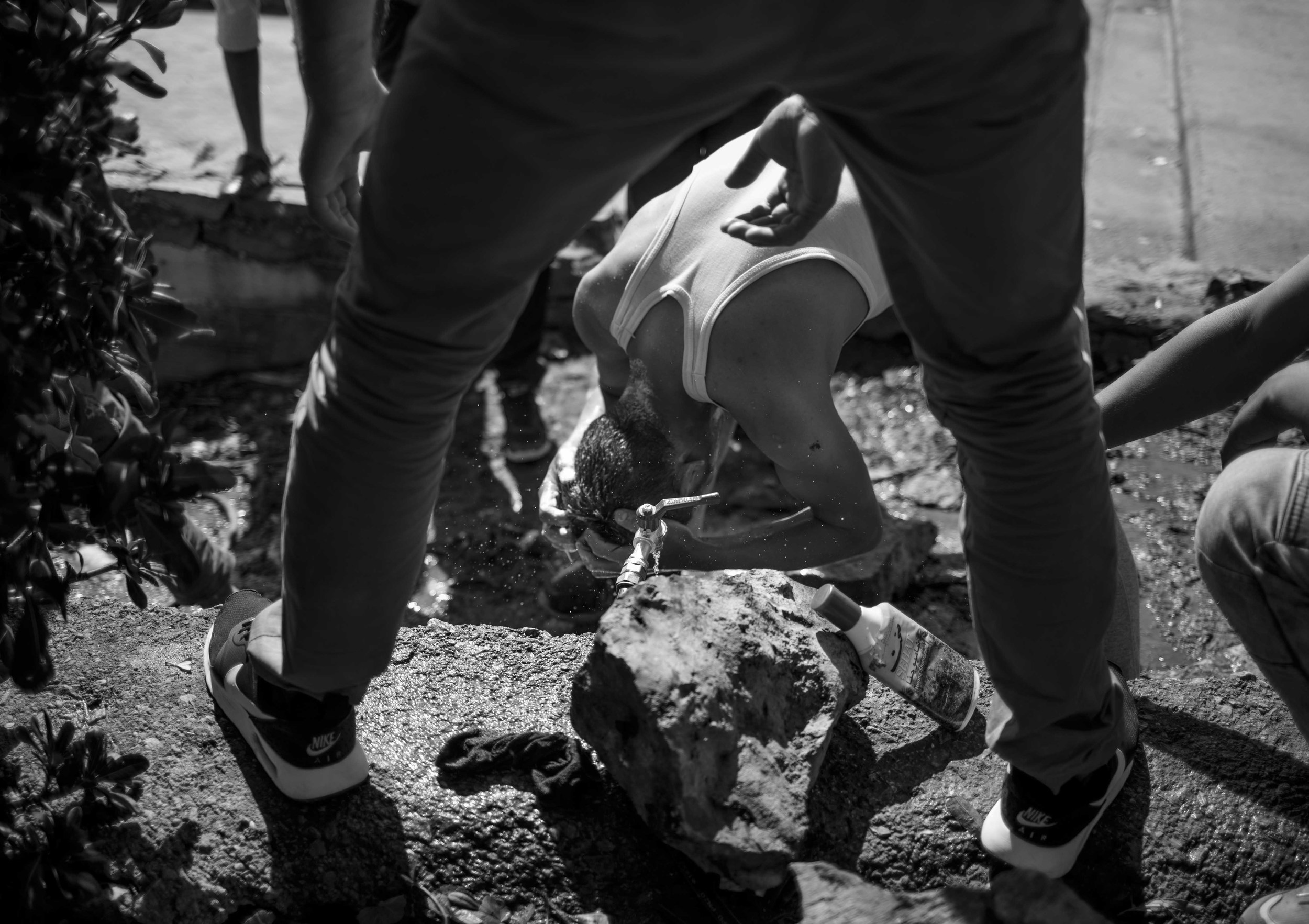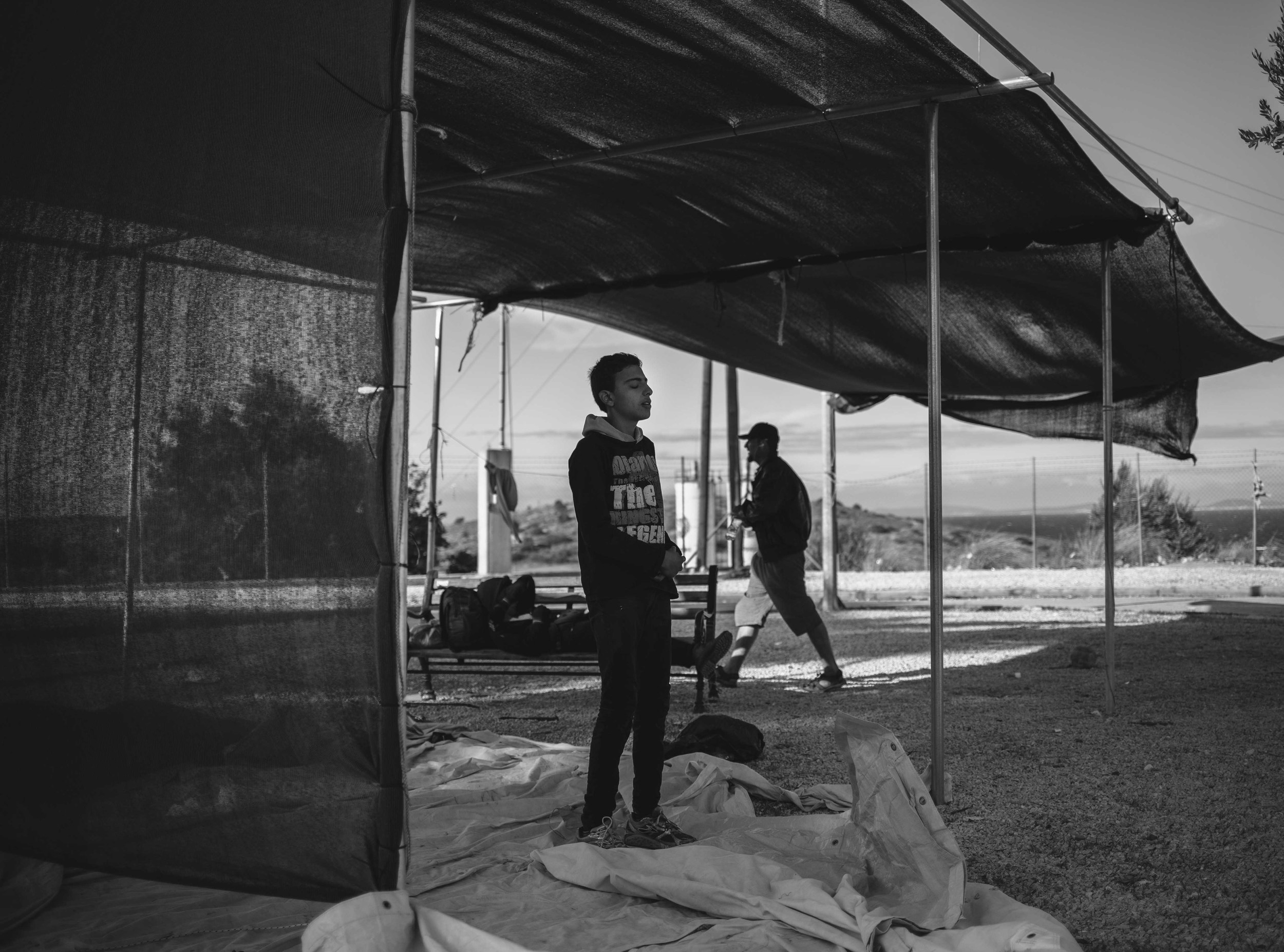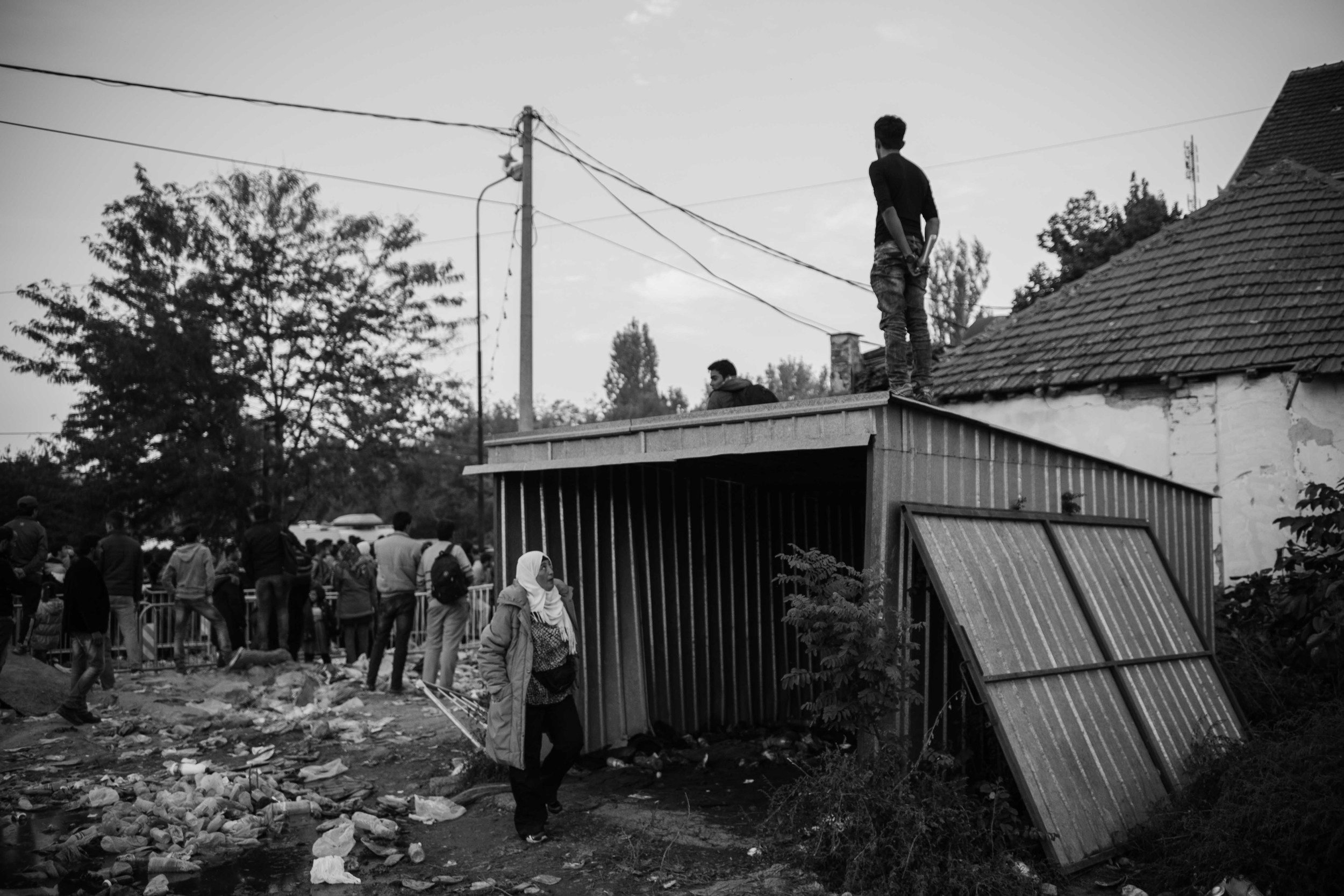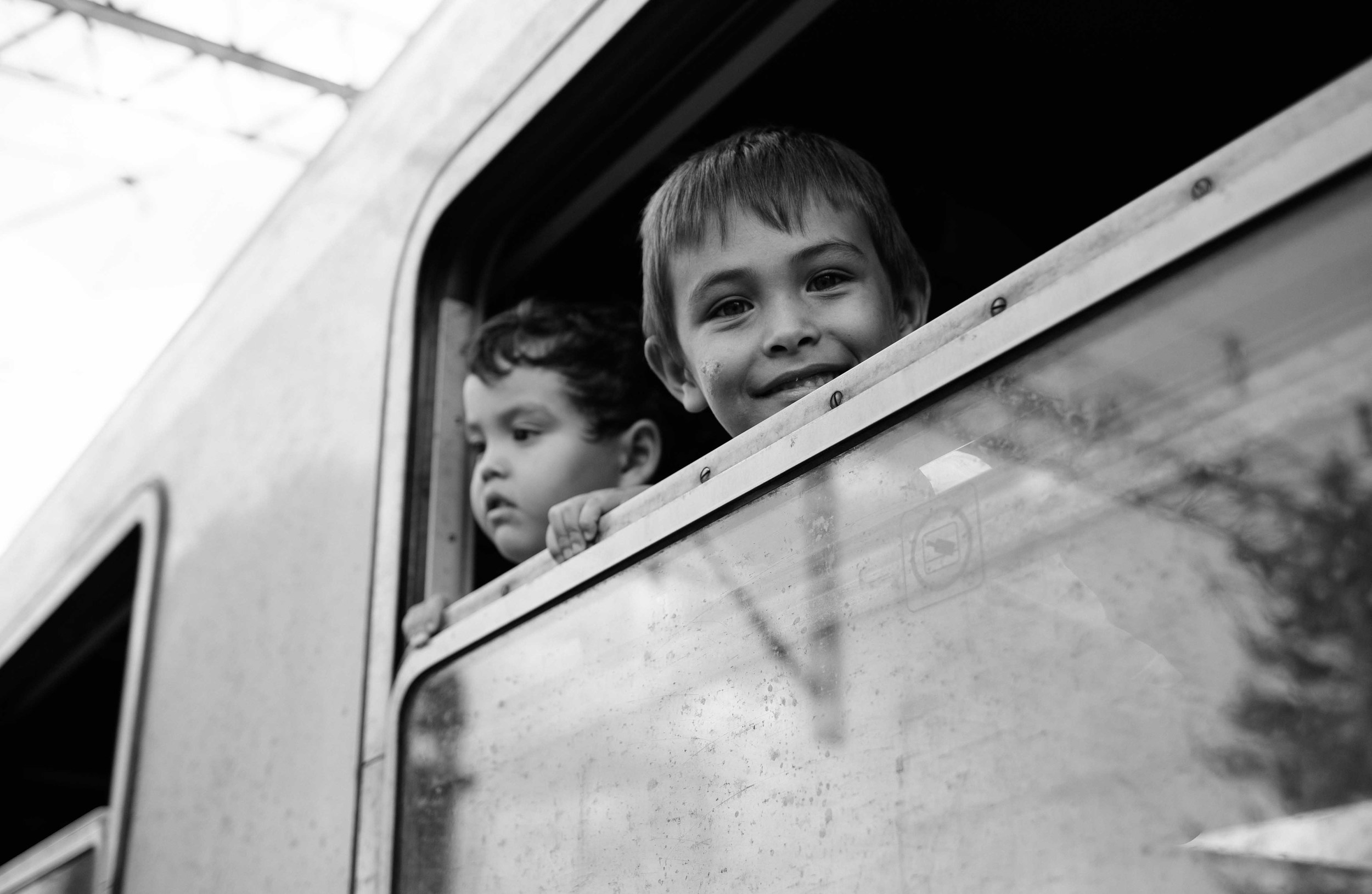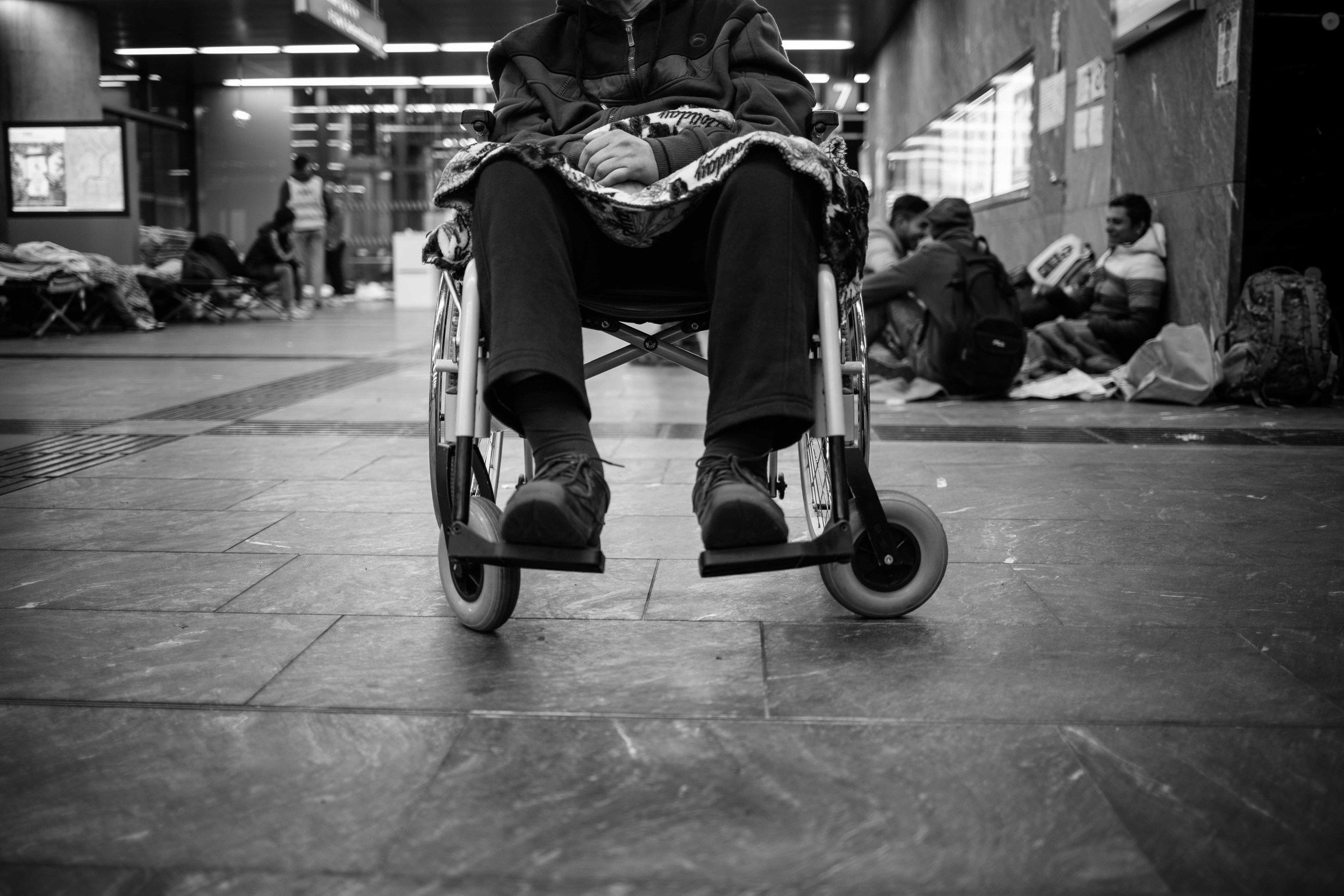"They did not want us. They did not help us."
The project 'Refugee Trails: A European Odyssey' was a joint multimedia project I collaborated on that explores the major migration route for refugees entering Europe, containing a detailed narrative of what it means to be a refugee today. We travelled from Lesbos, Greece across the Balkans and up to Germany to document the situation. This is a personal extension of that project featuring some unused photos from the project and highlighting some of the stories I encountered along the way.
As temperatures steadily drop, weary bodies of all ages fleeing the horrors of conflict continue to make the increasingly risky journey across the inky black waters of the Aegean to the Greek islands, where they will begin their journey up Europe to reach safety and the hope of a new life. News headlines have reduced the refugees to statistics, giving way to viewer apathy with potentially devastating consequences as winter approaches and the need for better provisions increase. The stories of those fleeing conflict are of untold horrors- they have witnessed and experienced some of the worst facets of human nature.
Scenes from Lesbos, Greece.
Daily Life in Limbo
Along the migration route are camps run by various NGOs, governments and international organisations. Each camp has its own dynamics influenced by political factors as well as a myriad of others. The next series focuses on the limbo that refugees face in the camp. They are torn between settling in the existing country and deciding to continue further which can involve waiting in a place for hours, days, sometimes even months. Uncertainty is a creeping factor that takes a slow toll on morale. Sluggish bureaucracy, a sense of injustice as authorities are not all welcoming, and a general sense of confusion to what lies ahead seemingly bites away at hope. Yet amidst all this, the rituals of daily life continue. Children in the camps give a sense of optimism and serve as a reminder to adults of the reason for the will to endure. But despite the children's ability to lose themselves in simple games, we encountered many who showed a sense of maturity that had been thrust upon them as a consequence of events they have no control over.
Movement and Restriction
A life on the move faced with uncertainty becomes the norm for refugees following the migration route up Europe. The situation changes daily with countries suddenly declaring themselves "full" and having reached their quota causing the route to meander its way around neighbouring states. For some, the unexpected costs that arise from extortion from camp authorities or traffickers forces people to settle where they are. Setbacks are all too common and the obstacles faced only shows how desperate the situation back home must be for them to consider this journey a safer alternative.
Obavid
"Please don't photograph his face. The regime want him." I am sitting in Austria's central train station that is so sleek it has the feel of a modern airport. Austria is the final part of the journey to the end destination for many: Germany. The young man I'm interviewing is named Obavid [name altered] who speaks good English. I ask him about his elderly father sitting next to him in a wheelchair, body relaxed and eyes a tired faded green. Obavid's two brothers sit on the other side of him resting against a wall. "Let me tell you about my father and our story" he says leaning forward. He recounts a story of three years spent constantly on the move with fierce determination.
In 2012, Obavid- then an engineering student in Homs, Syria, fled with his family to Lebanon. He does not reveal what his father did for the Syrian regime to want him, and when I ask him where his mother is he turns very sombre. After seven months in Lebanon, stress took its toll and Obavid's father suffered a severe stroke leaving him wheelchair bound. The family then sought help at the UNHCR compound only to be turned away. Around that time he was approached by two men saying they could get medical documentation for his dad. He payed them a considerable amount and waited for the documents to arrive. It turned out to be a scam. Distraught at the situation, Obavid decided to leave Lebanon and try Turkey. Here his dad succumbed to another stroke, this time rendering him speechless. The brothers then made the decision to sell everything to pay for travel to Europe by ferry.
Obavid and his brothers pushed their wheelchair bound father across the Serbian border and boarded a train to Croatia where their father's wheelchair broke. Despite frantic pleading to authorities, Obavid recalls their refusal to assist resulting in him carrying his dad alongside his two brothers for six gruelling miles. "I don't know what we did, but it was clear they did not want us. They saw [us and my dad] and they did not help us." Furious at the memory, he continues recounting their journey, "we would have been better staying in Lebanon". My heart sank as he said these words thinking about how his entry into Europe was marred with such negativity. Obavid looks around at the station walls and volunteers handing out food, pausing frequently to watch over his father's new wheelchair- a habit formed from over two years of constant vigilance. He then smiles a little and says that for the first time in three years he feels things are a little better. As I take the photo and thank Obavid and his brothers, his dad nods his head slowly and gives me a gentle smile extending me his hand.
Zid
Standing restlessly, Zid a former History and Geography teacher from Daraa, Syria, points across to a huge crowd that pours over and around barricades. He tells me his son has been waiting in there for two days in order to get documents that will enable them to leave the disorder in Preševo camp. Zid describes to me how he had fled barrel bombs and Daesh (IS) only to arrive in "this"- waving his arms up in frustration at the situation in the camp. He shrugs and smiles tiredly saying at least his son is safe. I ask him where he wants to end up ideally and he says either Germany or Norway.
Kara Tepe Refugee camp, Lesbos.
Mu'ayyad
Sitting with half his body leaning into a communal tent and his legs dangling out, a man blissfully puffing away on his cigarette in the mid day heat beckons me over. Hardship seems to have ingrained itself in his eyes and mannerisms. We are in Kara Tepe, a camp that holds mainly Syrian refugees in Lesbos. He introduces himself as Mu'ayyad, a Syrian Kurd, and as he relays his story he takes an occasional pause followed up by a long exhale of his cigarette, staring off into the hills and olive trees by the tents before continuing. He tells me not to photograph him but agrees to talk about his journey with me. Mu'ayyad's first destination having fled Syria was Turkey. "I fled Syria from [the] bombs only to go North [to Kobane, where Turkey is launching air strikes against Kurds] and get bombed by another country! I fled to another monster's mouth ! " Asking whether he felt comfortable in the Kurdish controlled regions of Northern Syria with other Kurds, he shakes his head. Mu'ayyad pensively tells me, "God should not be in politics. It is a dangerous thing."
Mu'ayyad's time in Lebanon was a largely negative experience resulting in him deciding to take the risk and cross over to Lesbos. Here he struggles to sleep from the nights that are becoming colder and he despises the in-fighting that occurs between different nationalities in the camps. Jokingly he says, "we all hate fighting and fled from it only to go here [and] first thing we do in camp is fight with one another for beds! No rest ! " In Lesbos there are two main camps; Moria, for the non Syrians, and Kara Tepe for the Syrians. Recently there has been criticism of Syrians receiving preferential treatment such as better facilities and processing times than non-Syrians, resulting in some bitterness within the camps. He tells me of his wish to continue being an electrician and motorcycle mechanic in Europe and that he has had enough of moving around and having terrible things happen to his friends and himself. We bid each other farewell. I turn back and see him wistfully looking out over the tent tops, his cigarette hanging lopsidedly from the corner of his mouth.










